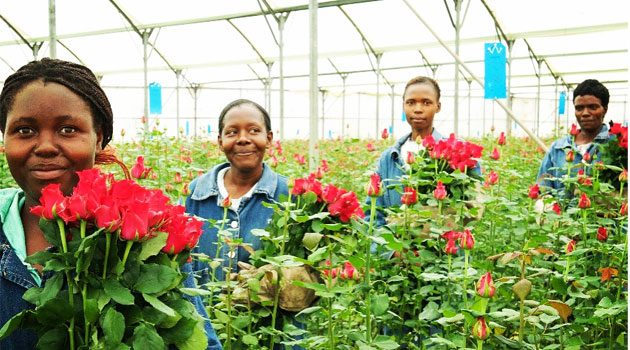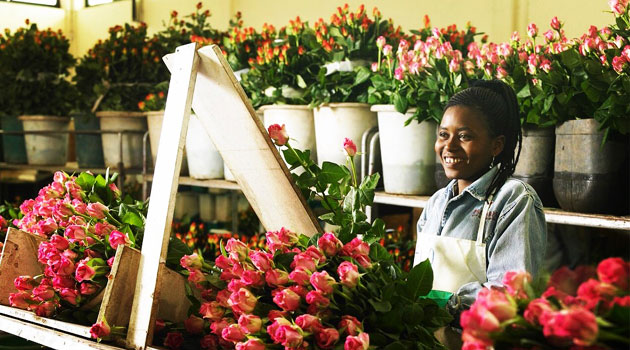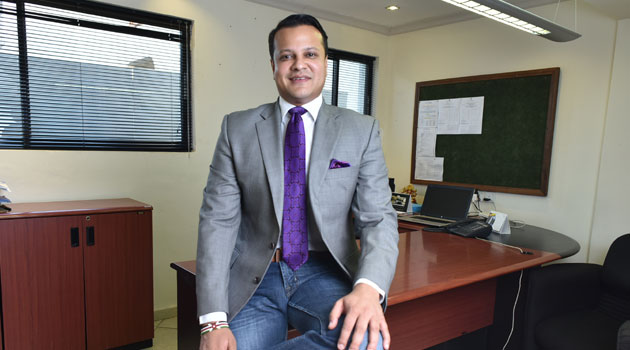
Meanwhile in 2017, the floriculture industry earned Sh82.25 billion whilst exporting a consolidated amount of almost 160,000 tonnes of cut flowers. Kenyan flowers are sold in more than 60 countries/COURTESY
NAIROBI, Kenya, Jun 5 – Primarosa Flower Limited, a subsidiary of Zuri Group Global, has called on Kenya Flower Council and the floriculture industry to set up its own independent and international flower auction to make the industry more attractive.
According to Bobby Kamani, the Managing Director, Primarosa Flower Limited, attributes this call to the strong policy instruments that currently favours Kenya’s flower industry.
Kamani said that Kenya has also a solid infrastructure, favorable climate, reputable commercial hub and a very productive workforce that is the backbone to the flower industry:
“A prime area of concern is that whilst the industry has grown exponentially, we are still relying on selling our cut flowers in Aalsmeer, Netherlands at the Dutch Flower Auction. It is high time that the Kenyan floriculture industry along with the Kenya Flower Council launched its very own Kenya Flower Auction. Global flower buyers and consolidators should be invited to visit our beautiful country whilst also engaging in the flower auction.”
He noted that approximately 50% of all exported flowers are sold through the Dutch Auctions, although direct sales are growing. In the United Kingdom, supermarkets are the main outlets.
“Over 25% of exported flowers are delivered directly to these multiples, providing an opportunity for value addition at source through sleeving, labelling and bouquet production,” Kamani said.
He noted that Kenya’s tea and coffee industries have had their very own auction houses since 1956 and has had its base in Mombasa since 1969. While Nairobi coffee exchange has been around since 1934:
“With tea, coffee and cut flowers being such integral parts of our economy, it would only make sense that we have a Kenyan flower auction in an area most well-known for growing flowers – Naivasha or Nairobi, for example.”
While Kenya only commenced export of cut flowers in the early 1980s, today it is the major exporter to the European Union (EU). About 38% of all cut flower imports into the EU comes from Kenya, with the main EU markets being Holland, United Kingdom, Germany, France, and Switzerland.

While Kenya only commenced export of cut flowers in the early 1980s, today it is the major exporter to the European Union/COURTESY
Meanwhile in 2017, the floriculture industry earned Sh82.25 billion whilst exporting a consolidated amount of almost 160,000 tonnes of cut flowers. Kenyan flowers are sold in more than 60 countries. The current Kenya Flower Council membership is responsible for close to 80% of the national volumes of flowers exported:
“On the global front, a growth of 5% is anticipated every year for the next 5 years and to achieve this, Kenya is going to have to continue investing in order to accomplish such unparalleled expansion in growth rate,” said Kamani.
Kamani also pointed out that despite a plethora of global markets which are yet to be discovered, Kenya has not tapped even 10 percent of the US market which is approximately Sh10 billion.

Kamani also pointed out that despite a plethora of global markets which are yet to be discovered, Kenya has not tapped even 10 percent of the US market which is approximately Sh10 billion/COURTESY
“With Kenya Airways commencing direct flights to and from the United States of America (US) in October 2018, the potential for the US market stands at approximately Sh10 billion! We have not managed to tap even 10% of this market, which could easily be achieved at our own international flower auction.”
While the industry continues to face challenges in cost of doing business and improving sector relations, Kamani called on Kenya Flower Council to push for bilateral discussions between government and private sector players:
“We would like to ask the Flower Council to look at ease of doing business primarily on energy, taxation and transport. We believe that the launch of our very own flower auction would most definitely assist us in overcoming these hurdles.
Kenya’s economy currently provides a livelihood to more than 500,000 people, including over 100,000 flower farm employees thus impacting over 2 million livelihoods.

































